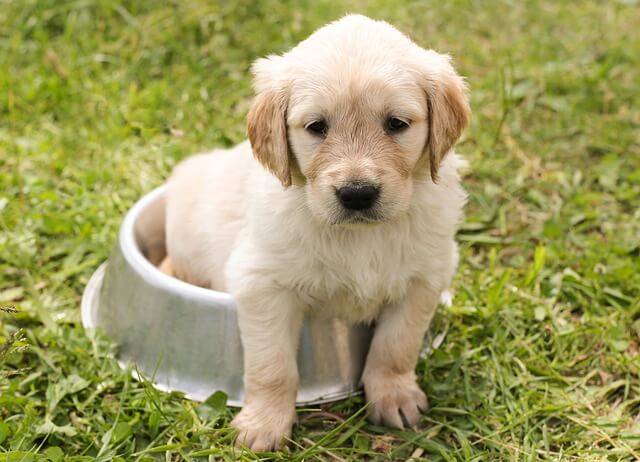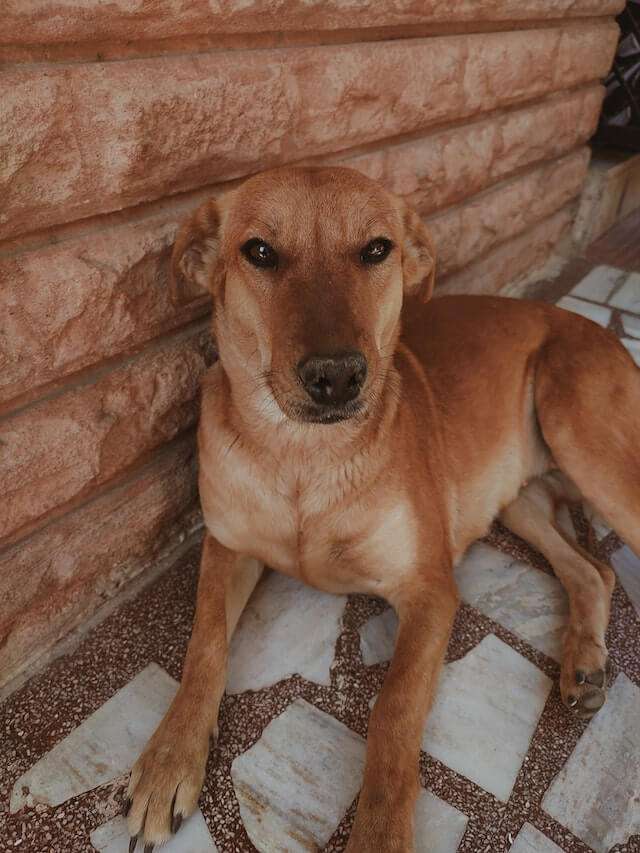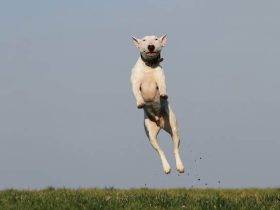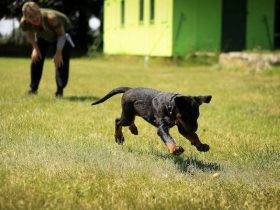dog potty training is a vital aspect of canine care, ensuring a harmonious relationship between you and your furry friend. As a responsible pet owner, you likely have a myriad of questions about the process. In this comprehensive guide, we’ll delve into the key considerations for successful puppy potty training. From the optimal age to start training to the most effective techniques, we’ll address your inquiries and provide valuable insights to make the journey smoother for both you and your pup.
The Right Age for Dog Potty Training
One of the common queries that new puppy owners often have is, “What age should a puppy be fully potty trained?” The answer varies, but it’s generally accepted that by the time a puppy reaches 6 months of age, it should have a good grasp of potty training. However, keep in mind that individual puppies progress at different rates. Factors such as breed, temperament, and consistency in training play a role in the timeline.
Early Training: Can an 8 Week Old Puppy Be Potty Trained?
You might wonder if an 8-week-old puppy can be potty trained effectively. The answer is yes! While very young puppies have limited bladder control, you can begin teaching them the basics of potty training. Establishing a routine and introducing them to a designated potty area sets the foundation for success. Consistency and patience are key during this early phase.
Speedy Solutions: The Fastest Way to Potty Train a Puppy
If you’re seeking the fastest way to potty train your puppy, remember that patience and commitment yield the best results. There’s no magical shortcut, but several techniques can expedite the process. Positive reinforcement, crate training, and a well-structured routine all contribute to faster training progress.
Ideal Age for Adoption: Is 12 Weeks Too Old to Get a Puppy?
Bringing home a 12-week-old puppy is a common choice, and it’s not too late to start potty training. Puppies of this age are still impressionable and capable of learning. Establishing consistency and teaching them the rules of your home can lead to successful potty training, provided you remain patient and dedicated.
Nighttime Strategies: Managing a 4-Month-Old Puppy’s Bathroom Needs
A frequently asked question is, “How long can a 4-month-old puppy hold pee at night?” Around this age, puppies can typically hold their bladder for about 4-6 hours. However, every pup is unique, so take cues from your puppy’s behavior. If your puppy is restless or anxious, it might be time for a nighttime potty break.
Nighttime Routines: Should You Wake Your Puppy Up to Pee?
Should you wake your puppy up to pee at night? While it’s generally advised to give your puppy uninterrupted sleep, if you notice signs of restlessness or whining, a short nighttime potty break is reasonable. Gradually, as your puppy grows, they’ll develop better bladder control.
Daytime Independence: Leaving a Puppy Alone
The question of how long a puppy can be left alone during the day is a crucial one for working pet owners. Puppies under 6 months old have limited bladder control and may need a bathroom break every 2-4 hours. As they mature, they can hold it in for longer periods.
Communication with Your Puppy: Teaching Them to Signal
Teaching your puppy to tell you when they need to pee is a valuable skill that fosters effective communication. Use positive reinforcement to reward behaviors like sitting by the door or barking when they need to go outside.
12 Weeks and Training: Should a Puppy Be Potty Trained by Then?
While a 12-week-old puppy can certainly begin the potty training process, it’s essential to set realistic expectations. Puppies of this age are still learning, and consistency is vital. Celebrate small victories and be patient as they gradually grasp the concept.
Nighttime Patterns: How Often Do Puppies Pee at Night?
Puppies’ nighttime pee frequency can vary, but on average, a 2-3-month-old puppy might need a potty break every 3-4 hours. As they grow, their bladder capacity increases, and nighttime breaks become less frequent.
Early Mastery: Potty Training a 3-Month-Old Puppy
Can a 3-month-old puppy be fully potty trained? While complete mastery might take a bit more time, starting early helps your puppy learn the basics. Keep training consistent and offer ample opportunities for successful potty trips.
Indoor Mishaps: Stopping Accidents Inside the House
To prevent indoor accidents, consistent supervision is essential. Employ crate training, frequent potty breaks, and positive reinforcement to guide your puppy toward proper outdoor habits.
Nighttime Durability: How Long Can Puppies Hold Pee at Night?
Around 3-4 months of age, puppies can usually hold their bladder for around 5-7 hours at night. Gradually increasing their ability to hold it in contributes to nighttime success.
Daytime Routines: Frequency of Outdoor Breaks
A 4-month-old puppy typically needs to go out to pee every 3-4 hours during the day. Maintaining a consistent routine helps prevent accidents and reinforces proper behavior.
Challenges in Training: The Hardest Dog to Potty Train
Certain breeds might pose more challenges in potty training due to their stubborn nature or independent streak. However, with dedication, any dog can be successfully potty trained with the right techniques.
Teaching Outdoor Cues: Training Your Puppy to Signal
Training your puppy to let you know they need to go outside involves observing their behavior and using positive reinforcement to reward signals like barking, scratching the door, or sitting by the door.
Dual Training Methods: Pads and Outdoor Training
Training a dog to use pee pads indoors and go outside is possible but requires consistent methods. Use separate cues for each situation and reinforce the behavior you desire.
Conclusion: Navigating dog Potty Training with Expert Insights
dog potty training is a journey filled with dedication, patience, and the joy of watching your puppy learn and grow. By addressing your questions and providing expert guidance, this guide equips you with the knowledge to embark on this vital training phase. Remember, every puppy is unique, and tailoring your approach to your puppy’s individual needs ensures the most successful and rewarding outcome. With the right techniques, a dash of patience, and plenty of positive reinforcement, you’re on the path to a well-trained and well-adjusted canine companion.





Leave a Reply